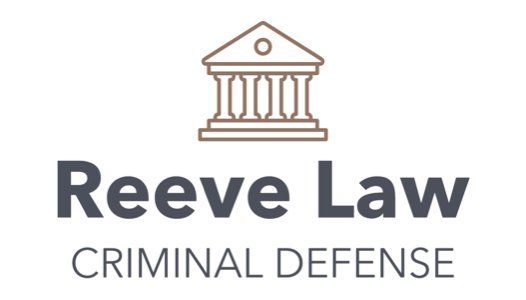Understanding Criminal Records
Understanding Criminal Records
When it comes to criminals we tend to have an “us and them” attitude. We consider a class of people, very different than us, who are the criminals and then there are the rest of us. Even when we are personally involved in the criminal justice system as alleged criminals we don’t think of ourselves as one of “them”.
With the changes brought about post 9/11 and the frequency of “vulnerable sector searches”(VSS) required by employers, one of the most difficult questions I am frequently asked by clients is whether they are going to get or have a criminal record. Although it seems like a simple question, the answer is surprisingly complex.
One reason for this is that there is a great deal of confusion or misunderstanding of what a “criminal record” really is – as it means different things to different people. To begin to understand this we have to start with how police records are created.
Canadian Police Information Centre (CPIC)
CPIC is the central police database where Canada’s law enforcement agencies can access information on a number of matters. It is Canada’s only national law enforcement networking computer system ensuring officers all across the country can access the same information. There are approximately 3 million files generated each year and is the responsibility of the originating agency to ensure the data integrity of each file. It is maintained by the Royal Canadian Mounted Police (RCMP) with the central registry located at the RCMP Headquarters in Ottawa, Canada.
Local, municipal and provincial police services in Canada, as well as federal law enforcement agencies such as the Canada Border Services Agency and Military Police maintain their own local records in addition to CPIC records. Local records are maintained of all contact with police for a variety of reasons, and may or may not contain information that would be entered into the CPIC system.
Police Record
Every time the police have contact with you, they keep their own record of it. This controversial practice is known as “carding”. If this contact involves alleged criminal activity and you are charged with a criminal offence, local police create a file for their records, and if the charge is for an indictable or hybrid offence, they send a copy of this information to CPIC. Almost every criminal charge is either indictable or hybrid. Therefore a record of your arrest and charge is kept by the local police force and the national database. The RCMP gives access to and shares information on CPIC with the United States Homeland Security, National Security Agency, U.S. Border Services, the FBI and Interpol.
Fingerprints and Photographs
The Identification of Criminals Act authorizes the police to require any and every person charged with an indictable or hybrid offence to provide their fingerprints and photograph. This information is entered on CPIC and becomes a part of your record. If you are eventually acquitted or have the charge withdrawn you can apply to the local Chief of Police with a written request to have them destroyed.
Conviction vs Discharge
The Canadian courts recognize that the registration of a criminal conviction can create many hardships for a person because there is a social and practical stigma against being labelled a “criminal”. When a person pleads guilty to or is found guilty of a criminal offence the Judge has to decide whether the conduct was serious enough to warrant the imposition of the stigma of a criminal conviction or whether to grant a discharge. A discharge is not a conviction. Therefore one may be found guilty of a criminal offence but not be convicted of a criminal offence. A discharge may be absolute or conditional. A conditional discharge involves a period of probationary supervision with conditions and restrictions. An absolute discharge incurs no further punishment or penalty. If you have been convicted then you have a “criminal record” but if you’ve been discharged you are entitled to honestly and legally answer the question “have you ever been convicted of a criminal offence” in the negative.
Registration of Dispositions
A record of the disposition of the criminal charge is entered on CPIC. Therefore whether you are convicted or granted a discharge, or acquitted (found not guilty) after trial, or the Judge has ordered a stay of proceedings or the Crown has stayed the prosecution or has even totally withdrawn the charge(s) against you or you’ve entered into a peace bond to resolve the charges, a record of it is kept by the local police and CPIC. The record is now complete.
Criminal Record Searches
Increasingly these days potential employers are requesting and requiring a “criminal record search” and will base their decision on whether to hire you or continue to employ you on the results of the search. This will be either a “Criminal Name Index” search which will indicate only that a record exists, or a “Criminal Record Synopsis” search which will contain a conviction history which means only convictions. Therefore if you have not been convicted of a criminal offence then the search will be clear.
Where the employment relates to dealing with people with vulnerabilities, sensitive information or positions of some trust such as security guard, child care worker or working with children or disabled or disadvantaged people, a cab driver, a financial institution, insurance company, nurse or any job where you have to be bonded the employer will probably require a “criminal background check” also commonly referred to as a “vulnerable sector search” (VSS). This authorizes the 3rd level of search or “Full Criminal Record” which will provide information of any criminal charges laid and the disposition of those charges including withdrawals, acquittals, stays and absolute and conditional discharges. Therefore if you have ever been charged with a criminal offence it will show up under this search even if you were innocent.
Prejudice and Unfairness
The problem with a VSS is that it usually results in manifest unfairness and prejudice in that you have to explain and attempt to justify something you have not been found guilty of but may still effect your prospect of employment. The decision of whether this information will be contained in the search results lays with the local entering police force. There are 3 steps that can be taken to attempt to have this information removed. 1. Make a formal written request to the local Chief of Police setting out the difficulties this causes and why it is a hardship and unfair. 2. In the last provincial election the leaders of each of the 3 major parties recognized this as a problem for citizens and pledged to look into it, so it would be appropriate to request your local MPP to assist you in your appeal to the Chief of Police. 3. Failing that a formal legal application can be brought to a Superior Court Judge for an Order requiring the Chief of Police to remove this information from the search return. This however is an expensive process with no guarantee of success as recent decisions have gone both ways. The ultimate solution is a political one.
The Bottom Line
From the moment that you are charged with a criminal offence, regardless of the outcome, it will be reported on a VSS search, whether you are guilty or innocent of the charge.

